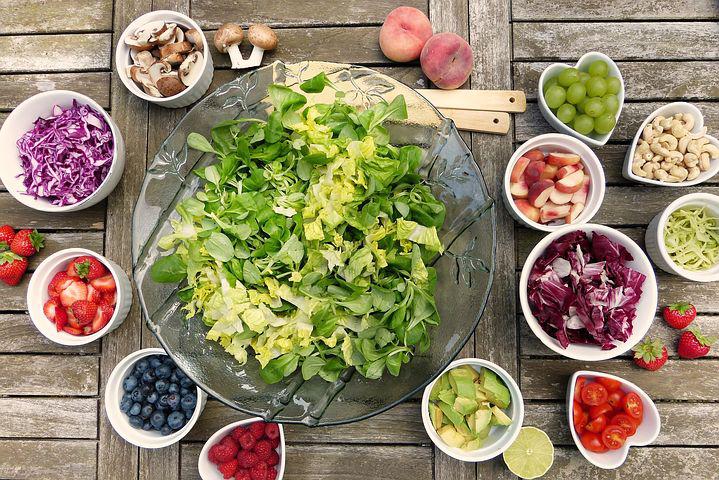Visitors have accessed this post 190 times.
Diet food refers to food items that are specifically designed to promote weight loss or support healthy eating habits. These foods are typically low in calories, fat, sugar, and sodium, and high in fiber, protein, and nutrients. While diet food can be helpful for those looking to lose weight, it is important to remember that a well-balanced diet consisting of a variety of whole foods is the key to overall health.
Here are some examples of healthy diet foods:
-
Vegetables: Vegetables are low in calories, high in fiber, and packed with essential vitamins and minerals. Dark, leafy greens like spinach and kale are particularly nutrient-dense and can help keep you full.
-
Fruits: Fruits are a great source of natural sugar and are also high in fiber and nutrients. Berries, such as strawberries and blueberries, are particularly high in antioxidants.
-
Whole grains: Whole grains like brown rice, quinoa, and whole wheat pasta are high in fiber and complex carbohydrates, which can help you feel full and satisfied.
-
Lean proteins: Lean proteins like chicken breast, fish, tofu, and beans are low in fat and high in protein, which can help you build and maintain muscle.
-
Nuts and seeds: Nuts and seeds are a great source of healthy fats and protein. They are also high in fiber and can help keep you full.
-
Low-fat dairy: Low-fat dairy products like skim milk and Greek yogurt are high in protein and calcium. They can also help you feel full and satisfied.
When it comes to diet food, it is important to remember that not all products labeled as “diet” are actually healthy. Many diet foods are highly processed and can be packed with artificial ingredients, preservatives, and added sugars. Instead, focus on incorporating whole, minimally processed foods into your diet.
Here are some tips for incorporating healthy diet foods into your diet:
-
Start with whole foods: Rather than reaching for processed diet foods, start with whole foods like fruits, vegetables, whole grains, and lean proteins.
-
Plan your meals: Planning your meals ahead of time can help you make sure you are getting a variety of nutrient-dense foods in your diet.
-
Avoid added sugars: Many diet foods are high in added sugars, which can contribute to weight gain and other health problems. Read labels carefully and look for products with no added sugars.
-
Watch your portion sizes: While healthy diet foods can be low in calories, it is still important to watch your portion sizes to avoid overeating.
-
Stay hydrated: Drinking plenty of water can help keep you feeling full and satisfied. Aim for at least 8 glasses of water a day.
In addition to incorporating healthy diet foods into your diet, it is also important to remember to enjoy your food and listen to your body’s hunger and fullness signals. Eating mindfully and savoring your food can help you feel more satisfied and avoid overeating.
Finally, it is important to remember that a healthy diet is just one part of a healthy lifestyle. Regular exercise, stress management, and adequate sleep are also important for overall health and wellbeing.
In conclusion, diet food can be a helpful tool for those looking to lose weight or support healthy eating habits. However, it is important to focus on whole, minimally processed foods and to avoid highly processed products with added sugars and artificial ingredients. By incorporating a variety of nutrient-dense foods into your diet, staying hydrated, and listening to your body’s signals, you can support your health and wellbeing for the long-term.
